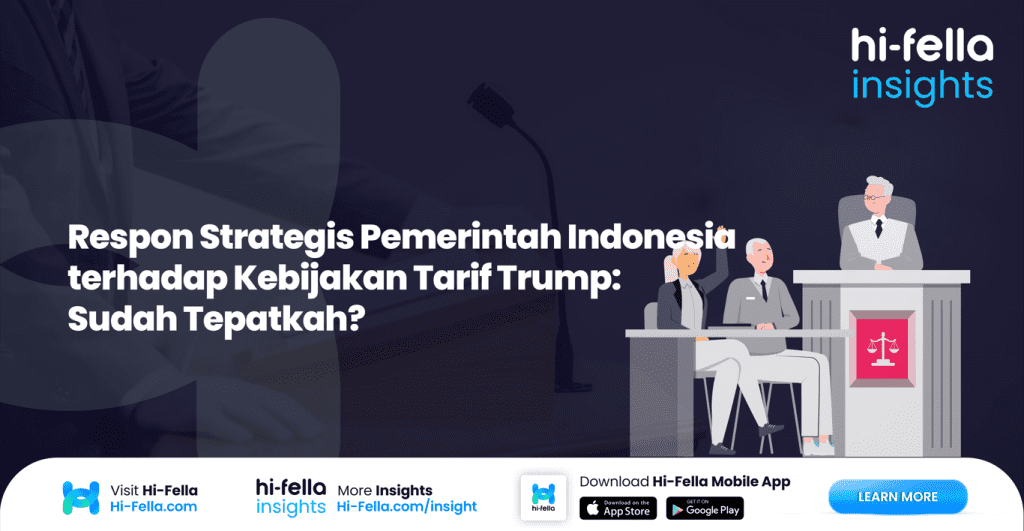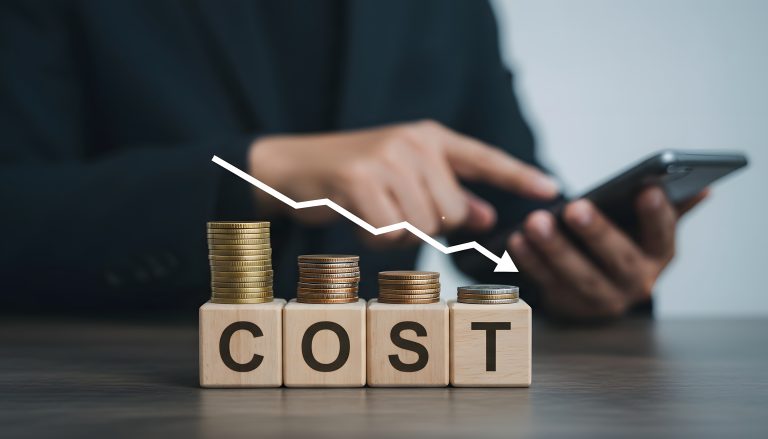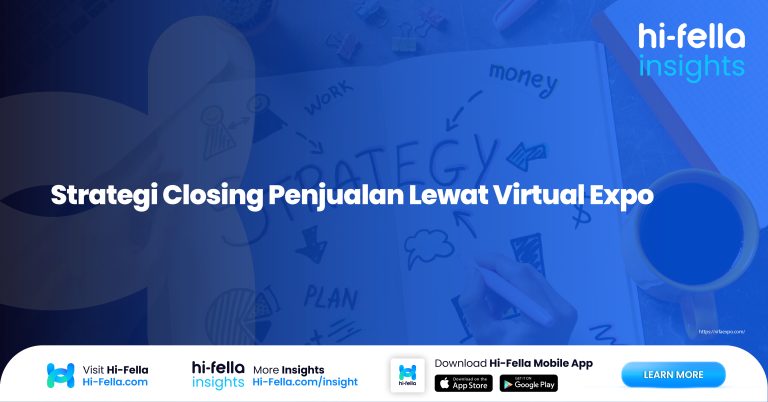Ingatkah Anda era ketika cuitan di Twitter seorang Presiden negara adi daya bisa mengguncang bursa saham dan mengubah peta perdagangan global dalam semalam? Itulah era Donald Trump, zaman di mana diplomasi konvensional kadang terasa seperti peninggalan purbakala, digantikan oleh strategi “America First” yang (dari sudut pandang negara lain) terasa seperti teman seperjalanan yang tiba-tiba memutuskan bahwa semua camilan di tasnya adalah miliknya sendiri, dan kalau Anda mau, Anda harus bayar harga premium (atau tidak dapat sama sekali).
Di tengah gejolak ini, ada Indonesia, negara yang sedang asyik membangun industri dan meningkatkan ekspor, terutama ke pasar Amerika Serikat. Tiba-tiba, muncul kabar tarif impor yang menyasar berbagai produk, termasuk beberapa yang krusial bagi industri padat karya kita. Respon seperti apa yang seharusnya diambil ketika menghadapi kekuatan ekonomi raksasa yang kebijakannya terasa… tidak terduga? Apakah Indonesia sudah cukup lincah, cerdas, atau bahkan jenius dalam menari di tengah badai tarif ini?
Membedah Respons Pemerintah Indonesia
Diplomasi dan Lobi Senyap (atau Mungkin Teriak-teriak Kecil): Mencari Pengertian di Balik Kebijakan
Respons pertama yang paling elegan (dan paling melelahkan) tentu saja adalah diplomasi. Pemerintah Indonesia (dengan tim negosiator ulung yang semoga stok kopinya cukup) melakukan pendekatan bilateral, menjelaskan dampak negatif tarif AS pada industri kita, dan mencari celah untuk mendapatkan pengecualian atau pengurangan. Ini seperti mencoba menjelaskan kepada wasit sepak bola bahwa pelanggaran itu sebetulnya bukan disengaja, tapi karena ada kerikil di lapangan.
Melobi ini butuh pendekatan ekstra, mungkin menekankan bagaimana hubungan dagang yang baik menguntungkan KEDUA belah pihak, termasuk perusahaan-perusahaan Amerika yang beroperasi di Indonesia atau yang mengimpor komponen dari sini. Tepatkah? Secara konsep, sangat tepat. Dalam praktik, efektivitasnya sangat bergantung pada kemauan dengar pihak sana, yang kadang prioritasnya terasa berubah-ubah secepat feed Instagram. Sebuah upaya mulia, namun hasilnya mungkin perlu dilihat dari kacamata “meminimalkan kerugian” daripada “meraih kemenangan gemilang”.
Bukan Cuma AS yang Punya Toko: Strategi Diversifikasi Pasar yang Sudah Waktunya
Tarif Trump menjadi pengingat yang agak menyakitkan bahwa terlalu menggantungkan keranjang ekspor pada satu negara itu berbahaya. Pemerintah dan pelaku usaha didorong (atau lebih tepatnya, dipaksa) untuk lebih serius menggarap pasar non-tradisional: negara-negara di Eropa Timur, Afrika, Timur Tengah, atau bahkan menguatkan pasar di Asia Tenggara sendiri. Ini seperti ketika pacar utama mendadak ghosting, Anda jadi sadar bahwa punya banyak teman itu penting.
Secara ekonomi, diversifikasi ini strategi yang jenius untuk jangka panjang. Mengurangi risiko konsentrasi pasar, membuka peluang baru. Tepatkah? Sangat tepat, bahkan seharusnya sudah digalakkan jauh sebelum era Trump. Tantangannya adalah eksekusinya: menembus pasar baru butuh riset, adaptasi produk, dan upaya promosi yang tidak sedikit. Prosesnya lambat, tidak secepat dampak tarif yang datang mendadak.
Menguatkan Kandang Sendiri: Peningkatan Daya Saing dan Efisiensi Industri
Sambil lobi ke luar negeri dan cari pasar baru, pemerintah juga perlu “mengobati” industri di dalam negeri yang kena pukulan. Caranya? Meningkatkan daya saing. Ini bisa lewat deregulasi untuk mengurangi beban biaya operasional, memberikan insentif fiskal (misalnya pengurangan pajak atau bea masuk bahan baku) untuk menekan harga pokok produksi, atau mendorong modernisasi teknologi agar industri lebih efisien dan produk lebih berkualitas. Ini seperti memberdayakan petinju kita agar lebih kuat dan lincah, terlepas dari taktik curang lawan (tarif). Tepatkah? Sangat tepat, karena daya saing adalah fondasi. Namun, efektivitasnya bergantung pada seberapa cepat dan tepat sasaran insentif itu sampai ke pelaku industri yang benar-benar membutuhkan, dan seberapa besar skala peningkatan efisiensi yang bisa dicapai untuk mengompensasi biaya tarif yang naik.
Bantuan Langsung Tunai (Versi Korporat?): Insentif untuk Industri Terdampak
Untuk industri yang langsung terkapar akibat tarif (misalnya ekspor sepatu atau garmen tiba-tiba turun drastis), pemerintah bisa saja memberikan bantuan langsung, misalnya dalam bentuk subsidi upah, restrukturisasi utang, atau kemudahan akses pembiayaan. Ini seperti memberikan plester dan obat merah pada luka yang perih. Tepatkah? Tepat, sebagai langkah darurat untuk mencegah kebangkrutan massal dan PHK besar-besaran. Namun, ini hanya bersifat sementara dan tidak menyelesaikan akar masalah (tarif dan daya saing). Implementasinya juga butuh birokrasi yang sat-set, jangan sampai bantuan datang setelah pabriknya tutup.
Mengadu ke Wasit Internasional: Menggugat Lewat WTO
Jika dirasa kebijakan tarif AS melanggar aturan perdagangan internasional (sesuai kesepakatan di World Trade Organization/WTO), Indonesia bisa mengajukan gugatan. Ini seperti membawa masalah ke pengadilan internasional, berharap wasit global bisa menengahi dan menyatakan pihak lawan bersalah. Tepatkah? Secara prinsip dan legal, ini hak setiap negara anggota WTO. Namun, prosesnya sangat panjang, rumit, dan hasilnya tidak instan.
Dampak ekonomi tarif tetap berjalan selama proses gugatan. Jadi, ini lebih merupakan langkah strategis jangka panjang untuk menegakkan aturan, bukan solusi cepat untuk masalah pesanan yang mendadak sepi. Semacam main catur, tapi gerakan lawannya kadang seperti main lempar dadu.
Membalas Budi (atau Dendam?): Menarikkan Tarif Balasan (Tidak Populer)
Secara teori, Indonesia bisa saja membalas dengan mengenakan tarif impor pada produk-produk tertentu dari AS. Misalnya, menaikkan pajak untuk Harley-Davidson (bikin pusing komunitas motor besar!), apel Washington, atau mungkin sereal gandum sarapan (drama sarapan pagi!). Namun, strategi ini sangat berisiko dan umumnya tidak menguntungkan negara yang kapasitas ekonominya lebih kecil. Dampaknya bisa merugikan konsumen domestik (harga barang impor AS jadi mahal) dan memicu balasan lebih lanjut dari AS. Tepatkah? Dalam kasus ini, umumnya dianggap tidak tepat dan lebih banyak mudaratnya daripada manfaatnya. Lebih baik cari cara lain untuk melawan, daripada perang tarif yang cuma bikin rugi dua-duanya.
Narasi Nasional: Komunikasi Publik yang Tenang dan Meyakinkan
Di tengah ketidakpastian, peran pemerintah mengomunikasikan situasi kepada pelaku usaha dan masyarakat luas sangat penting. Menjelaskan apa yang terjadi, apa saja langkah yang sudah dan akan diambil, serta memberikan arahan. Komunikasi yang tenang tapi jujur bisa mengurangi kepanikan dan membantu industri beradaptasi. Tepatkah? Sangat tepat. Jangan sampai industri bingung, atau malah beredar hoaks yang makin memperkeruh suasana.
Jadi, sudah tepatkah respons strategis Pemerintah Indonesia terhadap kebijakan tarif Trump? Jawabannya, seperti banyak hal dalam ekonomi, tidak hitam putih sesederhana saus sambal dan saus tomat. Langkah-langkah yang diambil, seperti diplomasi, diversifikasi pasar, dan penguatan daya saing, secara konseptual adalah tepat dan sesuai dengan kaidah ekonomi internasional dalam menghadapi guncangan eksternal. Pemerintah tidak tinggal diam, mereka berusaha menari sekuat tenaga di tengah badai.
Namun, efektivitasnya sangat dibatasi oleh sifat kebijakan tarif Trump yang cenderung unilateral dan kurang dapat diprediksi, serta asimetri kekuatan ekonomi antara Indonesia dan AS. Ibarat kancil menari menghindari injakan gajah yang gerakannya kadang mendadak dan tanpa pola. Upaya diversifikasi pasar dan peningkatan daya saing adalah kunci jangka panjang, tapi butuh waktu dan konsistensi. Langkah jangka pendek seperti lobi dan insentif darurat mungkin hanya “plester” untuk luka yang dalam.
Respons pemerintah sudah berjalan di jalur yang benar secara teori ekonomi, tetapi tantangannya adalah seberapa cepat dan efektif eksekusinya mampu mengimbangi kecepatan dan skala dampak tarif yang datang dari jauh. Ini adalah pelajaran berharga tentang pentingnya ketahanan ekonomi dan kelincahan strategis di era globalisasi yang penuh kejutan (dan cuitan).
Jadi, tepatkah? Ya, upayanya tepat. Apakah sudah cukup tepat untuk meniadakan dampak negatifnya? Nah, itu pertanyaan yang jawabannya tergantung pada seberapa tangguh industri kita bertahan dan seberapa lincah tarian ekonomi Indonesia di panggung dunia yang makin ramai dan kadang kurang ramah.
Saatnya Main Cerdas di Panggung Perdagangan Global
Respon pemerintah terhadap kebijakan tarif ala Trump memang bisa dibilang penuh strategi—tapi tantangan belum berhenti di situ. Di tengah ketegangan dagang global, yang paling penting sekarang adalah bagaimana pelaku usaha Indonesia bisa ikut main cerdas, membaca peluang, dan menyesuaikan langkah supaya tetap melaju kencang di pasar ekspor.
Untuk itu, hi-fella hadir sebagai solusi praktis dan modern. Lewat platform ekspor-impor dan pameran dagang virtual online, hi-fella bantu kamu—mulai dari supplier sampai eksportir—untuk terhubung dengan buyer global tanpa ribet. Mau tampil di pameran internasional? Mau cari mitra dagang baru? hi-fella tempatnya. Yuk, go international dengan cara yang seru dan efisien bareng hi-fella!








